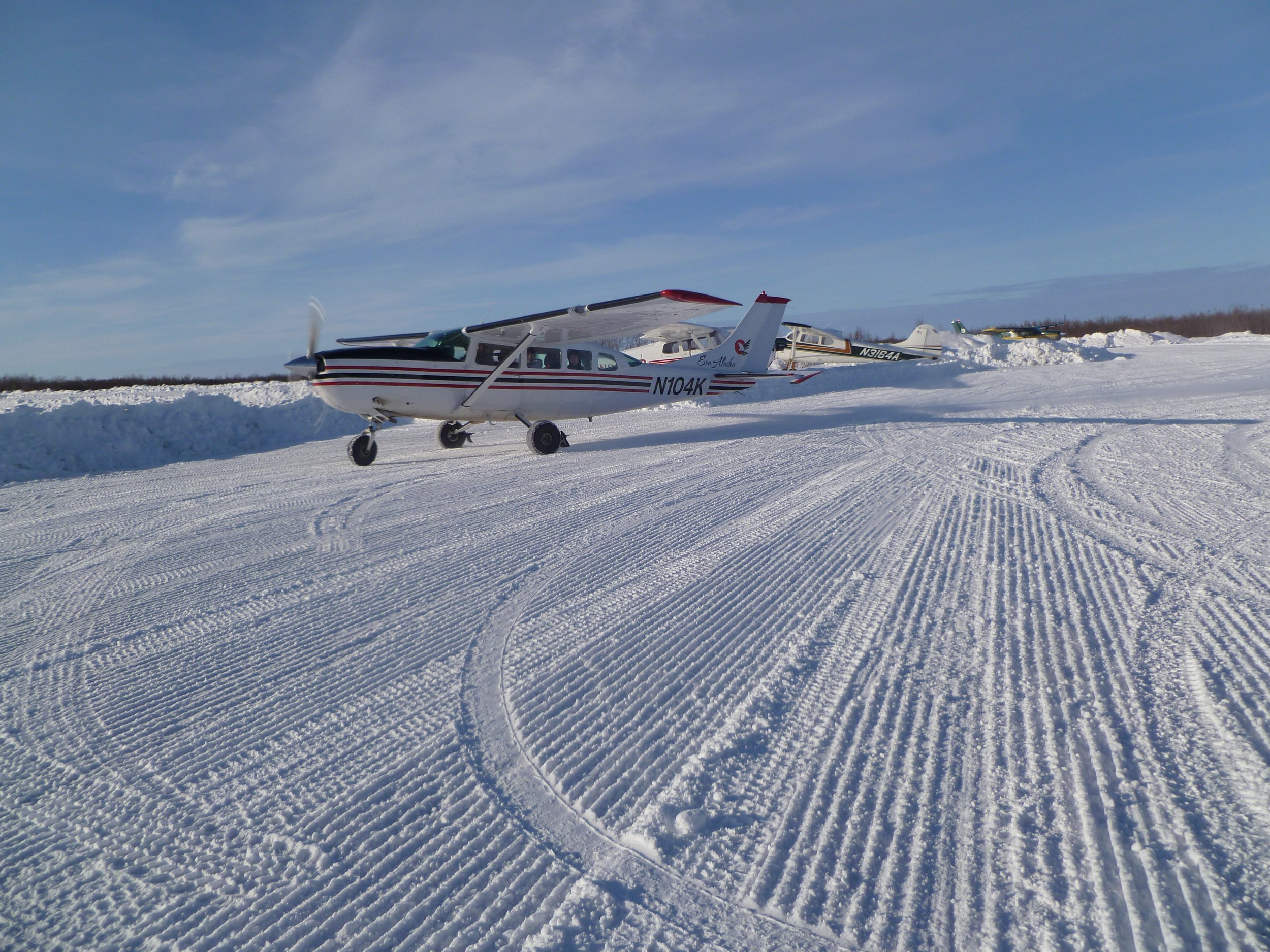Foster Kids Come from a Different World of Expectations and Rules
This week I flew to Phoenix to visit to spend a week visiting with my Aunts and my mom! I LOVE all things family and taking a break from our dark Alaskan winter for a week of long days of sunshine!?! Count me in! It's beautiful here in winter, but I can take a week's break from the -20 weather. (:
I have flown to many places. But did you know many foster kids in Alaska need to fly to their new foster family's homes?
Living in an isolated village in rural Alaska for ten years, the only practical and time-efficient way in and out was by plane. We flew to other villages since there were no roads connecting them. As the cross-country coach and school sponsor for the yearly science fair and Future Educators of Alaska sponsor, I flew a lot. Our school district had 11 villages (and schools) in an area the size of Ohio. We flew to every meet or competition, staying overnight on the floor in one of the classrooms.
We flew Students to every meet
I was told it was school district policy not to put siblings on the same plane.
We usually took two planes. I'm not sure if it was true, but I was told it was school district policy not to put siblings on the same plane, and it was strictly followed in our village. "In case one went down," locals explained. Unfortunately, there were deaths every two or three years or so due to weather or the environment, and my students were not exempt from these tragedies.
I only heard of one plane crash in the area where a plane went down near St. Mary's. But I know of a few occasions where people had problems landing and went off the runway or tipped when they came in, but no one got hurt. A lot of people fly, and it's windy. It wasn't an "accident," but a Cessna I was in tipped on its nose when I came in as we were coming to a stop. It made my heart jump, but the pilot hopped out and tipped the tiny plane back up before I climbed out.
The church missionary in our village moved to Alaska in the 50s, and she told us she had been in three plane accidents while living in villages of rural Alaska. Unfortunately, she passed away now, but if I remember correctly, amazingly, I think the only injury she had was a broken arm.
There were two villages I had reservations about flying into because we would have horrible turbulence and often had to make multiple attempts to land. One time, we couldn't find an opening in the clouds, and after four tries, we turned around and returned to our village. We would often get stuck in those villages. While it was good to have a break from our village (one mile in length in marsh as far as the eye could see), sleeping on the floor in a classroom for extra days while supervising teenagers who wanted to stay up all night wasn't my idea of fun. Still, it was refreshing to visit with a teacher who taught my grade from another village!
When I moved to my village, I was surprised that houses didn't have running water, but they had cable TV. There were no roads in or out of the village, but the Yukon river was a highway for metal boats in the summer and snow machines in the winter. During freeze-up, parents would put their children in their metal boat and push behind, so they could hop in the boat and push themselves across if it broke through the ice.
Five of my students or their family members have died from drowning accidents since I began teaching there 20 years ago. People get lost in the snow on occasion when hunting or coming back from another village by snowmachine (a few hour drive across tundra and river). Accidents happen with guns on occasion too. So the instructions to listen to your elders are not just a matter of respect. It is a matter of survival.
Children from the villages see death since the subsistence lifestyle is still prevalent in many families. Even if a family doesn't hunt, they will be given fish to clean, a whole moose leg (with fur) to the process, or they see people cleaning a seal on the river bank. Children watch with curiosity and often help too.
While this was very hard for me to see initially, I have always eaten meat and fish and realized that if I can eat it, I need to be okay with the fact that someone needs to catch it and clean it.
When our class pet bird died, I was afraid of the kids' reaction, but while some were sad, they seemed to take it in stride, and some students had a certain amount of curiosity about it.
In a community 1 mile long where the 600 people all know each other or of each other, it's common for kids to roam freely from one relative's house to another. In an isolated community like this, it develops its own culture even though it's exposed to TV and trips to the outside. There are kids in the village who have never been outside their community.
Our family lived in the village during the school year while I taught. We love the unique culture and family that we have there. During the summers, my family would go to the Lower 48 to spend time with my side of the family, and at times we would go to Anchorage during the school year to see a doctor since there wasn't one in the village. My children would forget to put on seat belts and walk right out into parking lots without looking because it had been a while since they forgot. They would wander off in a store because, in the village, we knew everyone in the store, or they could walk home from there if they wanted to. When foster kids come from a village and wander off in the store or street or seem to "take off," I know it is not a sign of disrespect or trying to run away. They are used to living in a world with different rules and norms.
What rules Do you have?
I bet you don’t have to remind your children, “Don’t play on the runway.” This was one of the things I had to talk to my 1st-4th graders about at times.
I tell these stories to give you a glimpse into a culture you may have never seen in our country. I'd like to challenge you that a foster child coming into any new home may come from a completely different set of learned rules and norms that may appear offensive or disrespectful to you, but they are from a different world, even if they are from your town.
Just last week, a grandma asked me to pray for her granddaughter because her elementary-age granddaughter is taking care of herself and homeschooling herself while her mom struggles with mental health issues. The only people this little girl has been able to see have been her mom, and she is occasionally allowed to see her grandma. Unfortunately, with child services, children on edge like this who are not in "imminent danger" are left to fend for themselves. Join me in prayer for children like this child in your community.
Powerful true story leaving rural Alaska!
Told by David Gibbs


